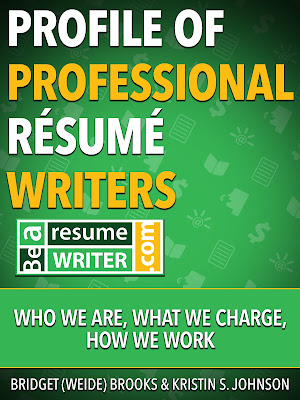Ask any new resume writer what's their biggest question and the answer is likely to be related to pricing their services.
The most common question I get is: How much should I charge?
You want to make sure you charge enough to be profitable, but you don't want to charge so much that clients can't afford to work with you.
You’ve got the competition to consider, your own skill set, what you perceive to be your skills (yes, this is different from the former for most of us), what your market will pay, your location (not as big of a factor as it was 10 years ago, but still relevant), and a host of other variables. Working it out can feel like a hurdle you can’t quite get past.
One simple calculation is to determine an hourly rate.
STEP ONE: Estimating Expenses and Income
The first step is to take a look at your estimated expenses. Remember to include your marketing expenses, supplies, rent, utilities, etc. Add your estimated expenses to what you want to make in income. For example, if you want to earn $100,000 a year in your business and you estimate $20,000 in annual expenses, then your income target will be $120,000.
Annual Expenses (Estimate): _____
(plus) Desired Annual Income: _____
(equals) Income Target: _____
STEP TWO: Your Billable Hours and Schedule
Consider how many billable hours you can work each week. This information will help you determine how many clients you can work with each week, and then you can calculate your annual billable hours. (Don't forget to include vacation time into your estimate. For example, if you normally vacation two weeks of the year, then your billable hours will be multiplied by 50 weeks, not 52 weeks.)
Here's an example:
If you have 25 hours available for billing each week, then multiply that by 50 to give you 1,250 billable hours each year. Also consider how much non-billable time you need to spend on your business. (If you're having a hard time estimating billable vs. non-billable time, keep track for a week and then extrapolate it.) You can make adjustments to your plan as you go along, and you can consider outsourcing some of your non-billable tasks as your profits increase.
Billable Hours Per Week _____
(times) Number of Weeks You're Expecting To Work _____
(equals) Total Number of Billable Hours Per Year _____
STEP THREE: Calculating Your Hourly Rate
Business owners charging for their services use several different methods. You might bill by the hour or by the project (but the quote is often based on the anticipated number of hours the project will take, multiplied by the hourly rate).
Calculating your hourly rate is easy, because you have the information you need. Simply divide your "Income Target" (STEP ONE) by the "Total Number of Billable Hours Per Year" (STEP TWO). For example, $120,000 divided by 1,250 billable hours gives you an hourly rate of $96/hour
Income Target _____
(divided by) Total Annual Billable Hours _____
(equals) Hourly Rate _____
Creating a solid pricing structure requires you to do a little more digging. So with your starting number in line, take a look at:
Your Competition. This might take a little detective work, since a lot of resume writers don’t publish their rates online. But if you pay attention to their websites and social media, ask a few discreet questions, and get on their mailing list, you can figure it out.
Be realistic about who, exactly, your competition is, though. Don’t undervalue or over-sell yourself. In other words, make sure you’re comparing yourself to another provider who shares the same skills, market, and track record, rather than simply looking at who you strive to become.

You can also take a look at statistics from the resume writing industry as a whole. Career industry professionals --
sign up here to receive the current edition of the "Profile of Professional Resume Writers: Who We Are, What We Charge, How We Work."
Your Skills. In some fields, this is easy. There are certifications and educational programs that allow you — by virtue of having achieved them — to charge a certain rate. If you’ve followed this path, then pricing will be easy for you. If not, take a solid look at what you can legitimately claim as a skill.
Look, too, at your track record. Have you proven yourself by helping former clients (and do you have the testimonials and case studies to show for it)? If you do, consider a higher price range than you might have first thought.
Your Market. In the game of setting rates, it’s your market that has the final say. As any first year economy student can tell you, the price of anything lies where what the buyer is willing to pay meets what the seller is willing to accept.
If your goal is to give new college graduates a helping hand and lead them down the path to success, that unfortunately means you can look forward to low paying gigs (unless their parents are paying for your services!). That’s not a bad thing — everyone needs help in a job search — but it does need to be acknowledged. If, on the other hand, your target market is executives, then a higher fee isn’t just warranted — it’s a must. They will expect a higher price, and will not find value in the lowest-cost provider of anything, whether it’s coffee beans or business coaching.
Finally, don’t forget that pricing is never set in stone. It’s flexible. If you find you’re attracting the wrong market (or no market at all) you can always change your rates. Working too hard for not enough return? Raise your rates.
It’s your business. You get to call the shots.







